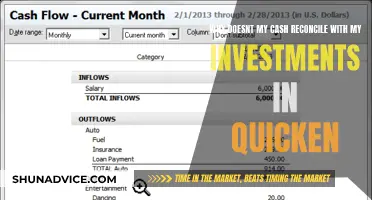
Investment bankers are financial advisors to corporations and governments, helping them raise money through debt and equity offerings. They play a crucial role in mergers and acquisitions (M&A), where they advise companies and execute transactions. In sell-side M&A deals, investment bankers advise companies looking to sell themselves or merge with another entity, while in buy-side M&A deals, they advise companies seeking to acquire other businesses. These bankers use their expertise to analyse companies, obtain financing, and negotiate deals to secure the best terms and prices for their clients. The process involves due diligence, creating and analysing valuations, organising marketing materials, and executing non-disclosure agreements. Investment bankers facilitate complex financial transactions, charging fees and commissions for their services.
| Characteristics | Values |
|---|---|
| Role | Financial advisors to corporations and governments |
| Who do they work for? | Wealthy individuals, corporations, and governments |
| What do they help with? | Raising capital |
| How do they help? | By underwriting and acting as the client's agent in the issuance of securities |
| Other ways they help | Mergers and acquisitions, market making, trading of securities |
| How do they earn profit? | By charging fees and commissions |
| Sell-side | Work with companies that want to sell themselves or merge with other companies |
| Buy-side | Work with companies that want to buy another company |
| M&A bankers as middlemen | Locate investors willing to participate as financial backers |
| M&A fees | It's not unusual for an M&A firm to earn more than $5 million for putting together a merger or acquisition worth $1 billion |
What You'll Learn

Investment bankers advise on the acquisition process
When a company wants to sell itself or merge with another company, it hires a sell-side M&A advisor. The investment banker works to bring the selling company to likely prospects, putting together all the deal particulars. They provide financial analysis and insights into potential buyers, ensuring their client receives the best deal and the highest possible price for the sale.
On the other hand, a buy-side M&A advisor represents the acquirer and determines how much the client should pay to buy the target company. They help locate companies for clients to buy and often work on finding enough capital for their client to make the purchase.
Investment bankers play a crucial role in the acquisition process by creating different valuation models to determine valuation ranges for companies. They conduct accretion/dilution analysis to assess affordability for the acquirer and the effect of the consideration paid on projected earnings per share. Bankers also help clients assess synergistic opportunities from acquiring other companies and how those synergies can create value and reduce costs.
In addition to providing financial advice, investment bankers also undertake underwriting, where they buy shares directly from the company and sell them at a higher price to generate profit. They act as intermediaries between investors and companies, earning revenue through advisory fees. Their access to investors, expertise in valuation, and experience in bringing companies to market make them valuable in the acquisition process.
Investor Growth: Cash Flow Impact of Investing Activities
You may want to see also

They help clients raise money for acquisitions
Investment bankers are financial advisors to corporations and, in some cases, governments. They help their clients raise money for acquisitions. This may involve issuing stock shares, floating a bond issue, or arranging the sale of the company.
When a company wants to buy another company, it will hire a buy-side M&A advisor. The advisor will determine how much the client should pay to buy the target company. They will also help the client find enough capital to make the purchase.
Buy-side M&A bankers work with clients to locate companies for acquisition. They will often work on finding enough capital for their client to purchase the company. Many companies merge with or acquire other companies using money that M&A bankers find from various investors.
M&A bankers act as middlemen, locating investors who are willing to participate as financial backers and earn a profit as a result. M&A bankers rarely use their own money to merge or acquire businesses. Instead, they find investors to back the deal. As financial middlemen, M&A firms and bankers typically charge hefty fees for putting together attractive financial services M&A deals.
M&A bankers also advise companies and execute transactions where companies sell themselves to buyers, acquire smaller companies, or divest or acquire specific divisions or assets from other companies.
Understanding Cash Equivalents: A Guide to Investing Wisely
You may want to see also

They negotiate a fair price for the deal
Investment bankers are financial advisors to corporations and governments. They help their clients raise money, which may include negotiating the acquisition of a rival company. They play an important role in mergers and acquisitions (M&A), from the moment companies contemplate an acquisition to the final steps.
M&A bankers can be divided into two categories: sell-side and buy-side. Sell-side bankers work with companies that want to sell themselves or merge with other companies, helping to bring them to likely prospects and putting together all the deal particulars. Buy-side bankers work with clients who want to buy a company, either a particular one they've identified or one the banker finds for them.
In both cases, M&A bankers use their experience and analytical skills to obtain the best deal for their clients. They advise companies and execute transactions where companies sell themselves to buyers, acquire smaller companies, or divest or acquire specific divisions or assets from other companies.
To provide meaningful advisory services, investment banks create different valuation models to determine valuation ranges for a company. They conduct accretion/dilution analysis to assess affordability for the acquirer and the effect of the consideration paid on projected earnings per share. They also help clients assess synergistic opportunities from acquiring other companies and how those synergies can create value and reduce costs in the future.
For example, in a sell-side deal, an investment banker advises a company that wants to sell—either the entire company or just one specific division. They help the company develop marketing materials, build models and valuations, approach potential buyers, share information with them, set deadlines, and collect bids.
On the other hand, in a buy-side deal, an investment banker advises a company that wants to acquire another company or asset. They research potential acquisition targets, create company profiles, and present them to the client. They also propose valuations or other analyses for the most promising targets.
Throughout these processes, investment bankers play a crucial role in negotiating a fair price for the deal. They ensure that their clients receive the best possible terms and that the transaction is financially viable for all parties involved. This involves evaluating a series of offers and counter-offers, which can be a lengthy process.
M&A bankers act as middlemen, locating investors willing to participate as financial backers and facilitating profitable deals. They charge hefty fees for their services, which can amount to millions of dollars for large mergers or acquisitions.
In summary, investment bankers are instrumental in negotiating fair prices for M&A deals. They provide financial analysis, advise on valuation, and facilitate the deal process to ensure their clients' interests are met while also working towards a mutually beneficial agreement between the buyer and seller.
Cash Dividends: Investing Activity or Not?
You may want to see also

They provide financial analysis and insight into potential buyers
Investment bankers are financial advisors to corporations and, in some cases, governments. They help their clients raise money, which may include negotiating the acquisition of a rival company or arranging the sale of the company itself.
When it comes to acquisitions, investment bankers provide financial analysis and insight into potential buyers. They work with companies that want to sell themselves or merge with other companies. This is known as the sell-side of the deal. Investment bankers help these companies find potential buyers and put together all the deal particulars. They also ensure their clients receive the best deal and the highest possible price for the sale of their company.
To do this, investment bankers create different valuation models to determine valuation ranges for a company. They conduct accretion/dilution analysis to assess affordability for the acquirer and the effect of the consideration paid on projected earnings per share. Investment bankers also help clients assess synergistic opportunities from acquiring other companies and how those synergies can create value and reduce costs in the future.
For example, if a company wants to sell itself to the highest bidder, the process can be long and drawn out, as different suitor companies engage in buyout talks and different proposals are evaluated, modified, and negotiated. Investment bankers play a crucial role in this process by providing financial analysis and insights that help their clients make informed decisions and achieve optimal outcomes.
Cashing Out Putnam Investments: A Step-by-Step Guide
You may want to see also

They help locate companies for clients to buy
Investment bankers are financial advisors to corporations and, in some cases, governments. They help their clients raise money and negotiate acquisitions. They also play a role in helping their clients locate companies to buy.
If a client wants to buy a company, investment bankers will use their experience and analytical skills to obtain the best deal for their clients. This could involve securing leverage, arranging an auction, or obtaining another offer for a particular business. In the early stages of the acquisition project, bankers are responsible for due diligence, creating and analysing valuations, and executing non-disclosure agreements (NDAs).
In a targeted buy-side transaction, the investment banker typically arranges the financing. They plan the bond issuance, price it appropriately, complete the required documentation, and help market the bonds to buyers.
Investment bankers have their fingers on the pulse of the current investment climate. They can help corporations and governments navigate the complex world of high finance. They save their clients time and money by identifying risks associated with a project before the client moves forward.
Investment bankers play a central role in the preparation of initial public offerings (IPOs) by young companies preparing to go public. They also work with established companies that want to raise large amounts of cash. They may also prepare a bond offering, negotiate a merger, or arrange a private placement of bonds or stock shares.
Cash App Investing: Not for Everyone
You may want to see also
Frequently asked questions
Investment bankers are financial advisors to corporations and governments. They help their clients raise money, which may include negotiating the acquisition of a rival company. They play an important role from the moment companies contemplate an acquisition to the final steps. They advise companies and execute transactions where the companies sell themselves to buyers, acquire smaller companies or divest or acquire specific divisions or assets from other companies.
There are two broad categories of investment bankers involved in acquisitions: sell-side and buy-side. Sell-side investment bankers work with companies that want to sell themselves or merge with other companies. Buy-side investment bankers work with companies that want to buy another company.
Sell-side investment bankers are responsible for bringing companies that want to sell out or merge with potential buyers or partners. They provide financial analysis and insights into potential buyers of their client's company. Their goal is to ensure their clients receive the best deal and the highest possible price for the sale of their company.
Buy-side investment bankers help locate companies for their clients to buy. They also work on finding enough capital for their client to purchase the company. They may also find a few potential targets, research them, create valuations and propose them in case the original deal falls through.
Investment bankers in acquisitions have access to better exit opportunities and earn more than those in capital markets. They also get exposure to a lot of financial modelling and valuation work. However, the work can be repetitive and the hours are often long.







